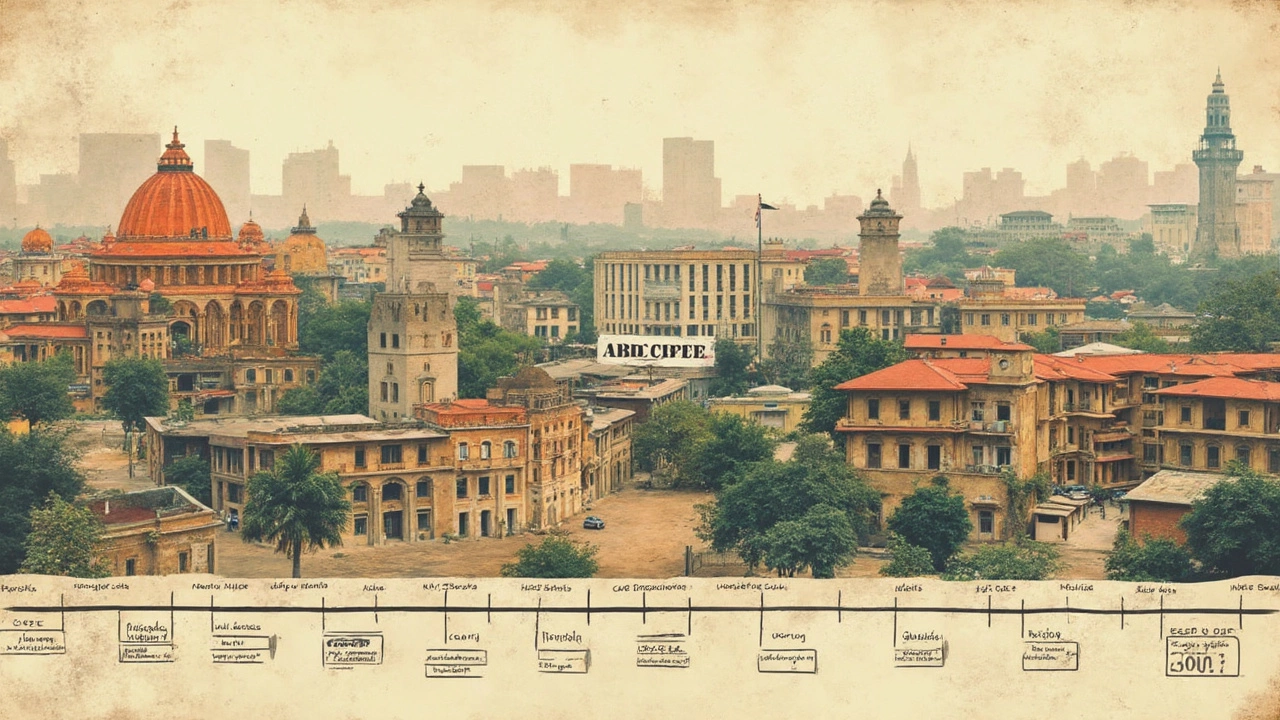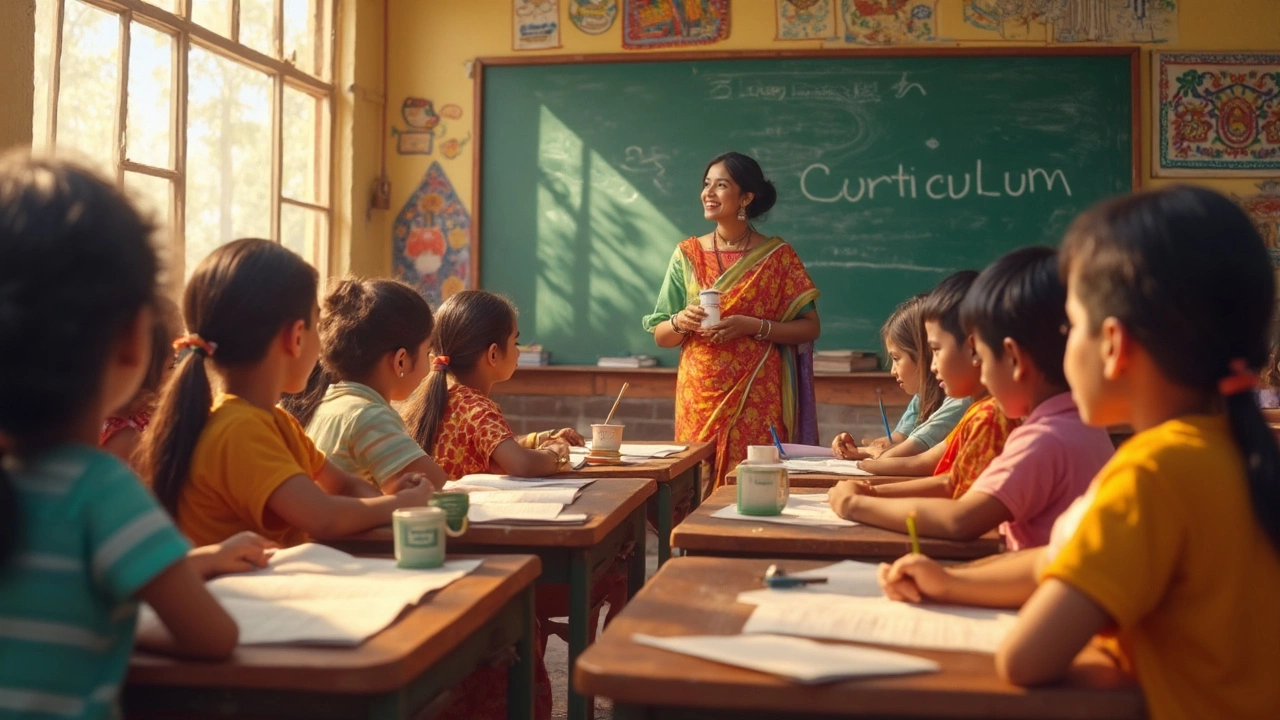Ever noticed schools or textbooks labeled with CBSE and wondered what it really means? CBSE stands for Central Board of Secondary Education. It’s more than just another acronym—this board decides what millions of students across India (and even some outside India) learn in their schools and how they get tested.
So why do so many schools prefer the CBSE board? For starters, it’s recognized by the Indian government and gets updated often, which means students get a syllabus that’s pretty up-to-date with what’s happening in the world. If kids want to appear for big national entrance exams like JEE or NEET, having a CBSE background is usually a plus.
Let’s unpack what CBSE actually covers and why it affects almost every family choosing a school today. Whether you’re a student staring at confusing syllabi, or a parent sifting through school options, knowing what CBSE stands for is a game-changer.
- CBSE Decoded: What It Stands For
- A Quick Peek into CBSE's History
- What Makes the CBSE Syllabus Special?
- Smart Tips for Students and Parents
CBSE Decoded: What It Stands For
The full form of CBSE is Central Board of Secondary Education. It’s a national level board of education in India that operates under the Union Government of India. CBSE is responsible for preparing the academic curriculum, conducting exams, and setting guidelines for thousands of affiliated schools across India and a few other countries.
Here’s what makes CBSE so important in the education scene:
- It manages education from primary up to secondary (Class 1 to Class 12).
- It standardizes the curriculum, so students in rural Assam and urban Hyderabad study the same topics.
- CBSE conducts two key board exams—the All India Secondary School Examination (Class 10) and the All India Senior School Certificate Examination (Class 12).
The board isn’t limited to India—more than 240 schools in about 25 countries are affiliated with the CBSE, making the syllabus familiar for students who move abroad or return home.
Here’s a direct take from the official CBSE website to clear any doubts:
“The Central Board of Secondary Education (CBSE) is committed to providing high quality education focusing on holistic development of students and preparing them for competitive examinations.”
Unlike some state boards which focus mainly on regional content, CBSE puts extra effort into preparing students for national level entrance exams like JEE and NEET. It’s known for sticking to NCERT textbooks, which are pretty much the gold standard for competitive exams in India.
| Number of Affiliated Schools | Over 28,000 |
|---|---|
| Countries with CBSE Schools | 25+ |
| Main Exam Months | February–April |
| Governing Ministry | Ministry of Education, Govt. of India |
So if you see ‘CBSE’ on a school or a syllabus, you’re looking at a system trusted by millions and designed to keep things equal, competitive, and up-to-date with what universities and employers are looking for today.
A Quick Peek into CBSE's History
The CBSE board didn’t just appear overnight. It started way back in 1929, thanks to a Government of India resolution. The main reason? There were students moving around the country with their families, like those with parents in government jobs or the armed forces. The CBSE was set up to give these students a standard and steady school education across states.
At first, there were just a handful of schools in Delhi and Ajmer using the board’s syllabus. But after independence in 1947, its reach grew fast. By the 1960s, the board got a massive overhaul—new subjects, regular syllabus updates, and proper training for teachers came in.
Today, we’re talking about over 28,000 CBSE schools worldwide, not just in India. Countries in the Middle East, Africa, and Southeast Asia actually have Indian International Schools that follow the CBSE syllabus. Here’s a quick look at how the numbers grew:
| Year | Number of CBSE Schools |
|---|---|
| 1961 | 309 |
| 1987 | 2,134 |
| 2024 | 28,000+ |
But it’s not just about numbers. The board’s whole setup is approved and regulated by the Indian government, which means families can trust its certifications and the CBSE exam board process—no matter where they’re living.

What Makes the CBSE Syllabus Special?
The CBSE syllabus isn’t just any list of topics—there's actually a science to why it works so well for so many students. One of its biggest perks is that it's designed with a focus on key concepts and practical learning instead of cramming long theories or mugging up outdated facts. The approach helps students actually understand what they’re learning, not just memorize it for the exam.
Another big point? The CBSE board keeps its textbooks and study material pretty standardized, thanks to NCERT (National Council of Educational Research and Training) backing almost every subject. So whether you're studying in Delhi, Chennai, or even Dubai, you'll find the same content—no nasty surprises if your family moves mid-year.
With entrance exams in mind, the CBSE syllabus is almost like a blueprint for big ones like JEE Main and NEET. Most of these exams use CBSE concepts or even exact chapters, so CBSE students naturally have a head start. That’s why parents swear by it if their kid wants to go for engineering or medicine after school.
Here's what really makes it stand out:
- It encourages analytical and logical thinking, making tricky subjects like Math or Science feel doable, not scary.
- Exams commonly use objective questions (like MCQs), which gives students practice for competitive tests.
- The language is clear and less ‘textbook-y’ compared to some state boards, so it’s easier to read and digest.
- Students get regular internal assessments—from projects to assignments—rather than just pinning everything on a final exam.
Quick fact: According to 2024 stats, over 27,000 schools in India and nearly 250 abroad use the CBSE curriculum. Clearly, it’s not a small club.
The board also updates the syllabus every few years so new science topics, tech changes, and current trends aren’t missed out. So, when you pick CBSE, you’re actually picking a syllabus that tries hard not to leave kids stuck with outdated info.
Smart Tips for Students and Parents
If you’re working with the CBSE syllabus, things run smoother with a few simple strategies. Both parents and students can avoid the last-minute scramble and make daily school life a lot less stressful.
- Stick to the NCERT books: The official textbooks set by CBSE (yep, those NCERT books) cover almost everything you’ll need for exams and even entrance tests. Don’t waste time chasing after ten reference books when these do the trick for 90% of the syllabus.
- Check the curriculum updates: The board actually tweaks the syllabus pretty often. Double-check the latest changes before buying any new books or starting prep. The CBSE website always lists current syllabi and sample papers.
- Master your basics: CBSE exams are heavily concept-based. Don’t just memorize—practice understanding every topic, especially in Maths and Science. This helps in cracking those tricky application-based questions.
- Use previous year question papers: Solving past papers is a proven hack. Many questions follow the same pattern, and it helps you manage time when the actual exam comes around.
- Balance studies and activities: The board encourages sports and extra stuff as part of its Continuous and Comprehensive Evaluation (CCE). Don’t ignore these—they build confidence, and marks from them can give your overall results a nice boost.
| Study Tip | Action |
|---|---|
| NCERT Focus | Start every subject prep here |
| Syllabus Updates | Bookmark the official CBSE website |
| Past Papers | Practice a full paper weekly one month before exams |
And if you’re a parent, join school WhatsApp groups or forums—they’re not just for messages about homework. Many parents share notes, sample papers, or even updates about changes in the exam pattern. Staying in the loop helps your child more than you might think.
The CBSE system isn’t just about marks. It’s built to get kids thinking, not memorizing for hours. So stress less, ask questions if something doesn’t click, and use all the resources the board offers. That’s how you make the most of the CBSE way of learning.
